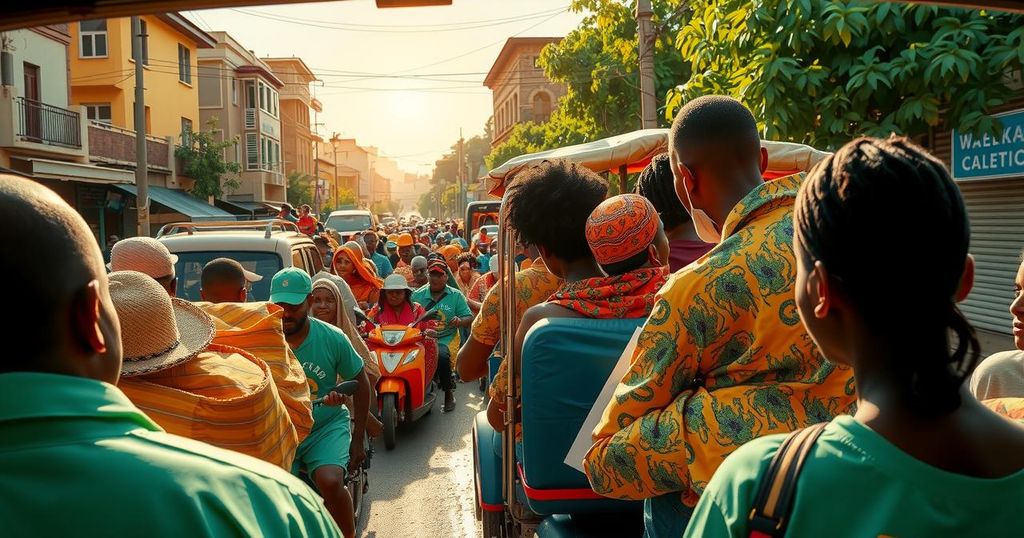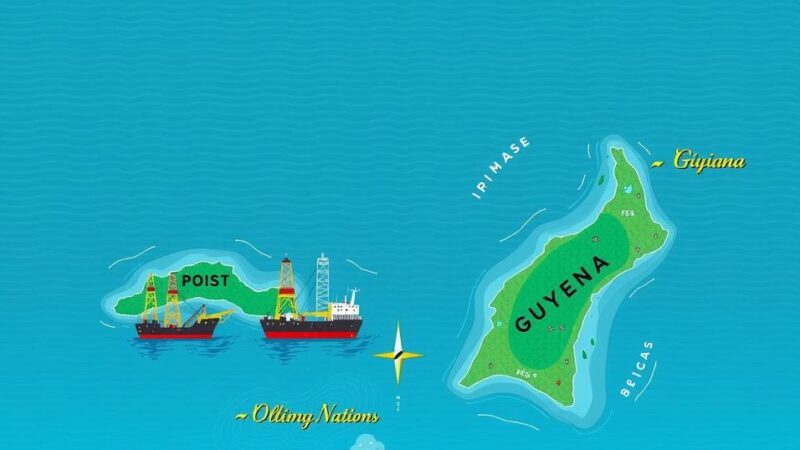The semi-public transport system in Greater Maputo, known as “chapa,” has deteriorated into chaos, particularly following post-election protests. Passengers confront arbitrary fare increases, overcrowding, and route alterations, leading to an arduous commuting experience. The vandalism of buses and the inaction of authorities have further compounded the situation, creating unsafe environments at transport terminals.
The use of semi-public passenger transport, popularly known as “chapa,” in the metropolitan region of Greater Maputo, has become increasingly burdensome for the thousands of residents who rely on this service daily. The current state of affairs has turned commuting into a challenging ordeal predominantly attributed to the prevailing chaos in terminals and stops, which has intensified following post-election protests.
Disorderly practices such as diversion and shortening of routes, selective passenger pick-up, unauthorized fare increases, and disrespect for traffic laws and users have become commonplace. Consequently, passengers experience increased waiting times at bus stops, and upon the arrival of a vehicle, they must hastily compete for seating, often having to stand while clinging to metal bars in overcrowded conditions devoid of safety.
It is not uncommon for users to pay double the standard fare and to be dropped off at undesired locations due to the arbitrary decisions made by transport operators. The situation has worsened due to the vandalism involving over 30 public and privately operated buses during protests, which previously mitigated long wait times and congestion at terminals.
The post-election violence also led to hostile encounters involving the Municipal Police and transport associations responsible for overseeing bus terminal activities, leaving many operators unaccountable. As a result, public transport terminals have transformed into chaotic environments, especially during morning and evening commutes, where physical comfort remains unattainable for most passengers.
Reports gathered from passenger interactions during a site visit by “Notícias” illustrate the systemic anarchy experienced within semi-public transport services, coupled with an apparent inaction from the Traffic and Municipal Police who are deterred by fears of aggression.
The turmoil surrounding semi-public transport in Greater Maputo has culminated in a disturbing scenario characterized by disordered practices, increased fares, and reduced safety for passengers. The aftermath of recent demonstrations has further fueled this chaos, leaving users without reliable recourse. Thus, addressing the systemic failures and restoring order in public transport should be a priority for authorities.
Original Source: clubofmozambique.com






